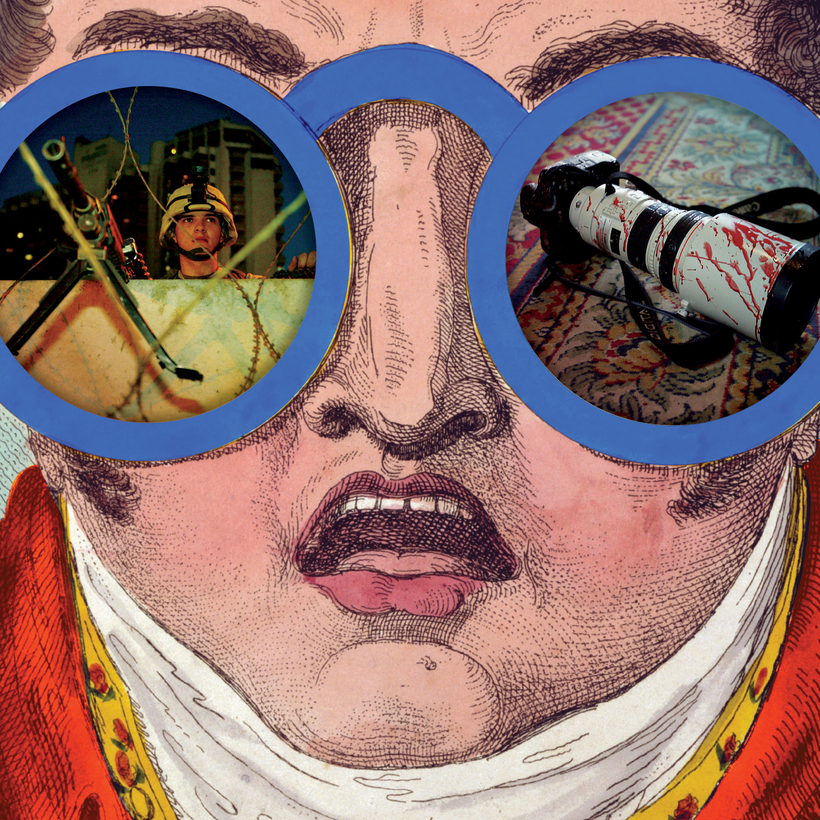When the Russian invasion of Ukraine began last year, I was sleeping on a mattress in the kitchen of a seventh-floor rented apartment in the eastern city of Kharkiv. At a little after four in the morning, when the missiles began to strike military installations around the country and Russian tanks poured over the border, this was not an ideal place to be. My first message, aside from a few reassurances to family members, was to a friend at NBC: Where were his people staying?
The answer was the Kharkiv Palace, a five-star luxury hotel in the center of the city. My reporting partner and I put body armor underneath our parkas, packed our bags, and rode the subway with a mix of confused commuters and people already fleeing the city.

